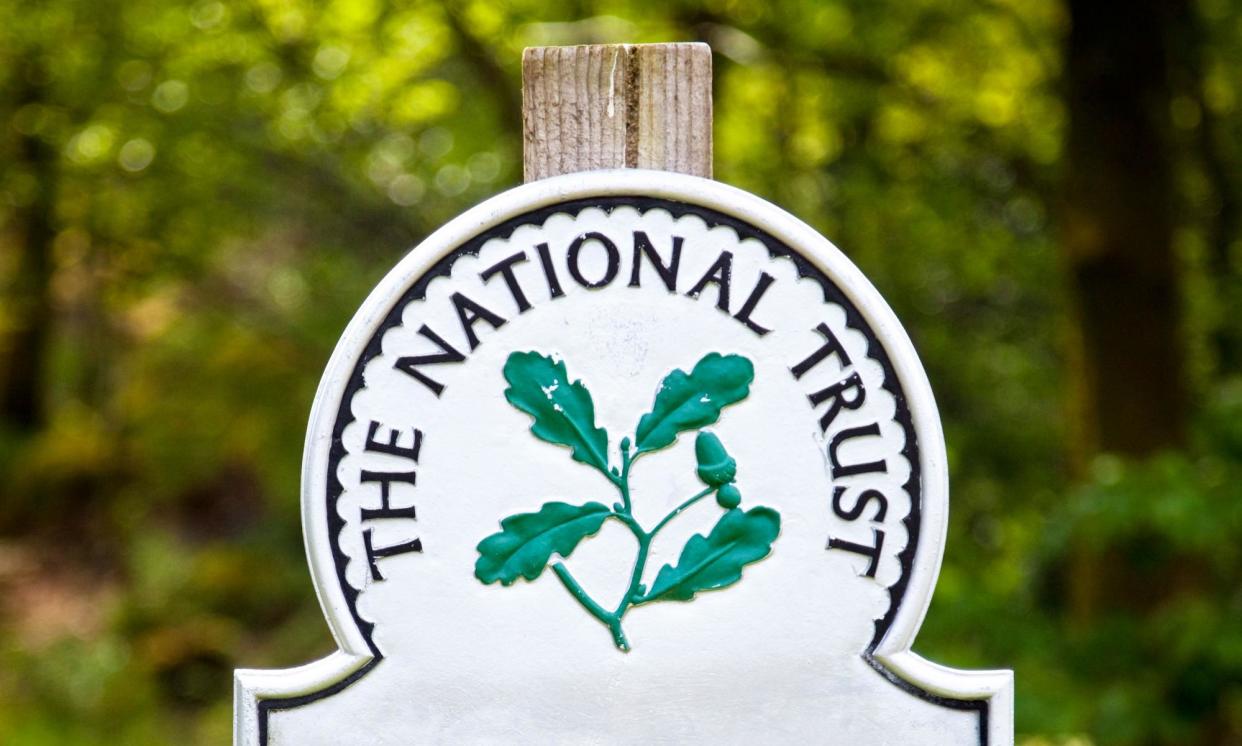National Trust members to vote on making cafe food 50% plant-based

National Trust members are being invited to vote on a plan to make 50% of the food in its cafes vegan and vegetarian as part of the charity’s commitment to reach net zero by 2030.
Cafe menus at the trust’s 280 historic sites are already 40% plant-based. Now, the trust’s 2.6 million members will get to vote on whether the charity should gradually increase this figure to 50% over the next two years.
The resolution, which was brought by a member and is being supported by the charity, will be voted on at the trust’s annual general meeting on 2 November, with online votes due in by 25 October.
However, the plan has drawn criticism, with the former Tory MP Jacob Rees-Mogg calling the resolution “a silly, attention-seeking proposal that won’t have any effect unless the National Trust decides to ration meat” while the TV farmer Gareth Wyn Jones described the charity’s aspiration to provide more plant-based food choices as “absolutely ridiculous from a massive landowner with so many livestock farming families living off these farms”.
The National Farmers’ Union president, Tom Bradshaw, suggested National Trust visitors should not have culinary decisions “imposed” on them and that there were benefits to eating meat and dairy. “What we eat is a personal choice and not something which is imposed,” he said. “Decisions should be made in an informed way taking into consideration the nutritional, environmental and biodiversity benefits that eating a balanced diet including meat and dairy provide.”
Earlier this year, the charity was forced to defend its vegan scone recipe after it was accused of “wokery”.
The Mail on Sunday suggested the trust had “secretly” made all its scones vegan, with critics condemning the decision to use vegetable spread over butter.
However, the charity said its fruit and plain scones in its cafes had actually been dairy free for years, to accommodate the different dietary needs and allergies of its customers, but they could still be enjoyed with lashings of butter, cream and jam.
In response to the growing furore around its latest proposal to offer more plant-based food, a National Trust spokesperson emphasised that the charity was “keeping dairy, eggs and meat on the menu, and continuing to work closely with farmers”.
She added: “We want our cafes to be more sustainable and we want to keep serving a great variety of food while meeting the changing preferences of our visitors. We estimate two-fifths of our menu is currently plant-based and we can move to half being so in the next two years.”
In its AGM booklet, the trust cited David Attenborough when explaining its reasons for the proposal: “The planet can’t sustain billions of meat-eaters.
“Moving towards a majority plant-based food system would allow more than 70% of farmland to be freed for nature restoration, a change that would capture massive amounts of carbon and increase biodiversity while still providing enough nutritious food for our growing population.”
Scientists say avoiding meat and dairy products is the single biggest way to reduce your environmental impact on the planet, and a recent survey of 7,500 people in 10 European countries found that nearly half of British adults (48%) were cutting down on the amount of meat they eat.
Last year students at Cambridge University voted to support a transition to a 100% vegan menu across the institution’s catering services, while students at Warwick and Newcastle have voted for their universities to provide 50% plant-based catering.
Earlier this year, the founder of the world’s largest vegan charity, Viva!, said all restaurants should offer at least 50% plant-based menus by the end of next year.


